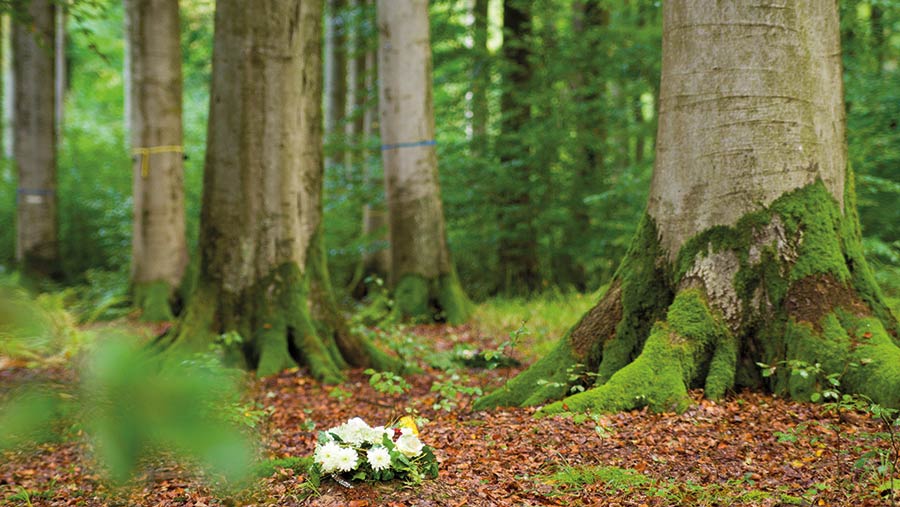Business Clinic: Costs and considerations of natural burial sites
 © Zauberkugel Studio/Adobe Stock
© Zauberkugel Studio/Adobe Stock Whether it’s a legal, tax, insurance, management or land issue, Farmers Weekly’s Business Clinic experts can help.
Edward Beale, associate partner at Carter Jonas Rural, sets out the considerations for natural burial sites.
See also: Business Clinic – should we collaborate more with neighbours?
Q: I want to start a natural burial site on the farm. Can you suggest set-up and running costs please, also what permissions or licences will I need? Do you have any idea of valuations on such sites?
A: A natural burial site can be a solid commercial venture if done right and in the right area, You will need to do market research to ensure the demand is there.
The ideal is in a picturesque countryside or woodland location, but close to settlements and with good transport links.
There will always be more demand for sites that can be visited easily and frequently by friends and family.
Traditional graveyards work on plot densities of up to 600/acre. Our clients with natural burial sites generally aim to have lower plot densities, down to 300/acre in some cases.
This helps make it a more attractive place to visit with good infrastructure and lots of trees, sculpture art and shrubbery.
Many also offer cremation burial plots – you can expect to accommodate roughly four times as many of these, with correspondingly lower fees.
Plot location
Topography is important when deciding where to locate plots. Cremation burial plots can be on sloping ground but graves need to be on level ground.
All buried remains must be above the water table to avoid contamination.
Some natural burial sites may not accept embalmed remains due to possible chemical contamination.
Most charge for the plot, which will be in perpetuity, as well as a fee for the ceremony and burial itself. The combined price for both would be between £2,000 and £2,500 per burial plot, or about £500-£600 for a cremation plot.
Bear in mind that if you offer this in perpetuity, the income you receive is a one-off and you will need to cover the cost of maintenance of the site. In essence, you are creating a nature reserve.
Cashflow can be slow initially. As you build your reputation, you will be able to better understand the capacity and lifespan of the site.
The main set-up cost is in the land, though it sounds as if you already have this. It must be reasonably level and not too wet, which often rules out the cheapest land.
Planning permission
Planning permission for the burial site will be needed and can be a little complicated because most local planning authorities simply haven’t come across a burial site before.
Consider the water table and ecology in submitting your plans. Any building will need planning permission but buildings may not be necessary at the outset.
The other major set-up cost will be the infrastructure – walkways to the graves and a car park.
Depending on the nature of the land, you may need to add some planting and perhaps landscaping or sculptures, especially if you are going to go down the route of opening it up to the public.
You’ll need public liability insurance as well, so speak to your insurer.
Essentially you are creating a wildlife reserve, so there may be some additional income in the long term to be generated either through grant funding, or privately.
Think carefully about how this business will fit with your other enterprises and the skill set you and your family or staff will need.
Your customers and other visitors will need careful handling and lots of time, so think carefully about whether this will work alongside the demands of a working farm – or consider hiring someone to manage it for you.
Do you have a question for the panel?
Outline your legal, tax, finance, insurance or farm management question in no more than 350 words and Farmers Weekly will put it to a member of the panel. Please give as much information as possible.
Email your question to FW-Businessclinic@markallengroup.com using the subject line “Business Clinic”.
